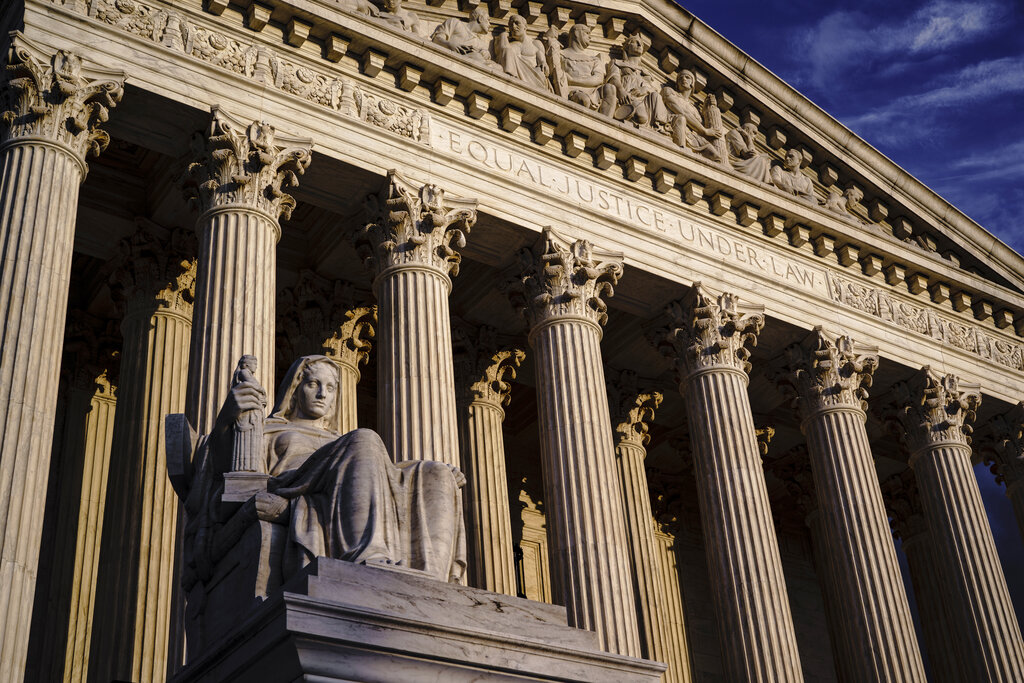The Court ruled that the state had a legitimate interest in protecting the health and welfare of its minors.
It was the Court’s first direct ruling on access to gender-manipulation treatments for minors under the Equal Protection Clause and signals the Court is willing to uphold some forms of transgender restrictions, especially when presented as medically neutral or age-based.
Transgender advocates called the ruling a major setback for healthcare, mental health and dignity.
 Others celebrate a ruling that says biology matters.
Others celebrate a ruling that says biology matters.
“The decision is also a clear victory for the legal point of view that a reference to sex does not necessarily trigger heightened scrutiny. And the way the court reaches that conclusion – by reaffirming that the biological differences between men and women matter – suggests that a majority of the court may view some lines as constitutionally permissible, such as laws that separate bathrooms and sports based on sex,” writes SCOTUSblog.com.
The Court’s decision should have been a no-brainer and will indeed be felt far beyond its narrow focus, Idaho Attorney General Raul Labrador said on Washington Watch last week.
“It was the easiest issue to decide, whether a state could actually forbid this type of care, transgender care, for minors. To me, it was the most common-sense decision by any state to say that you shouldn’t force kids to participate in those treatments or even allow those treatments,” he told show host Tony Perkins.
“But that's going to have broader implications in sports, in prisons, in all these different areas. So, I think we're going to see a series of cases,” Labrador said.
Reading tea leaves at UPenn?
Just two weeks after the Skrmetti decision, the University of Pennsylvania last week chose to settle and end a Department of Education investigation into its policy to allow biological males on its women’s sports teams.
UPenn’s federal funding was being threatened. The school agreed to apologize to female athletes affected by the presence of former male athlete Will Thomas on the women’s swim team. Records were restored to women athletes who lost them to the male swimmer, and the school agreed to ban males from women’s sports moving ahead.
The case was a Title IX matter, not an Equal Protection matter, but it’s possible UPenn’s legal advisors noted that momentum at the Supreme Court was not trending in favor of transgender causes.
A current case in Idaho involves a law that prohibits state funds and facilities from providing gender-manipulation treatments and procedures.
 Last fall a federal judge blocked Idaho House Bill 668 from taking effect.
Last fall a federal judge blocked Idaho House Bill 668 from taking effect.
The plaintiffs in a lawsuit against the state are two incarcerated biological males who have been diagnosed with gender dysphoria and have been prescribed hormone medications. They argue the law denies them necessary medical treatment.
“The parties’ disagreement stems from whether (House Bill 668’s) prohibition on appearance-changing medical interventions requires prison officials to act in a way that is deliberately indifferent to that serious medical need,” Judge David Nye wrote in his decision.
Nye was first appointed to his district court position by President Barack Obama, but that 2016 congressional session concluded without a confirmation vote.
Nye was renominated by Donald Trump in 2017 after consultation with Idaho senators Mike Crapo and Jim Risch. Crapo and Risch are both Republicans.
The two incarcerated men sued the State of Idaho. Nye ruled against the state, and so has the Ninth Circuit on appeal.
“The Supreme Court decided to vacate the Ninth Circuit decision and the lower court decision, return the case back to the Ninth Circuit and told them to review the case based on the findings that they had in the Skrmetti decision,” Labrador said.
Skrmetti decision adds clarity
He said the Supreme Court’s decision makes it clear that state officials should not be held liable for denying gender-manipulation treatment to prisoners.
Because of Skrmetti, rulings in similar transgender healthcare cases in North Carolina and West Virginia have been vacated and remanded for reconsideration.
So has an Oklahoma case involving the updating of birth certificates based on preferred gender identity.
“The more that’s coming out, the more we're realizing that we were right on these issues, not just legal issues, but scientific issues. So, I think the science has been developing as we thought it would, and the legal ramifications of these actions are developing as we thought they should. We’re going to see many of these cases being litigated, and we're excited that Idaho got this victory,” Labrador said.














